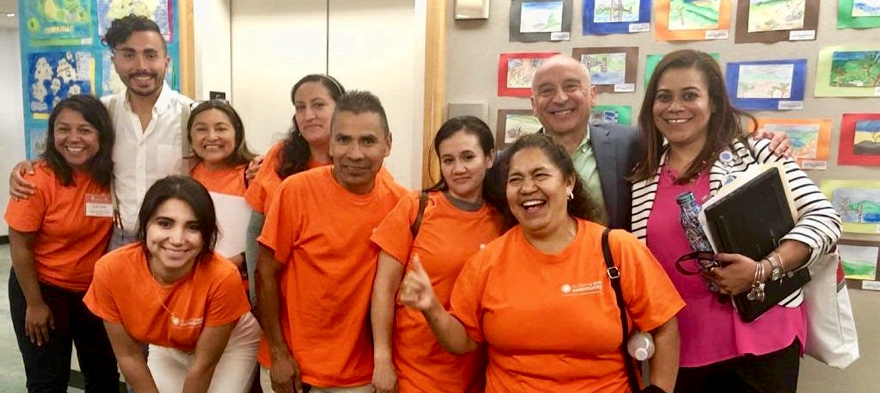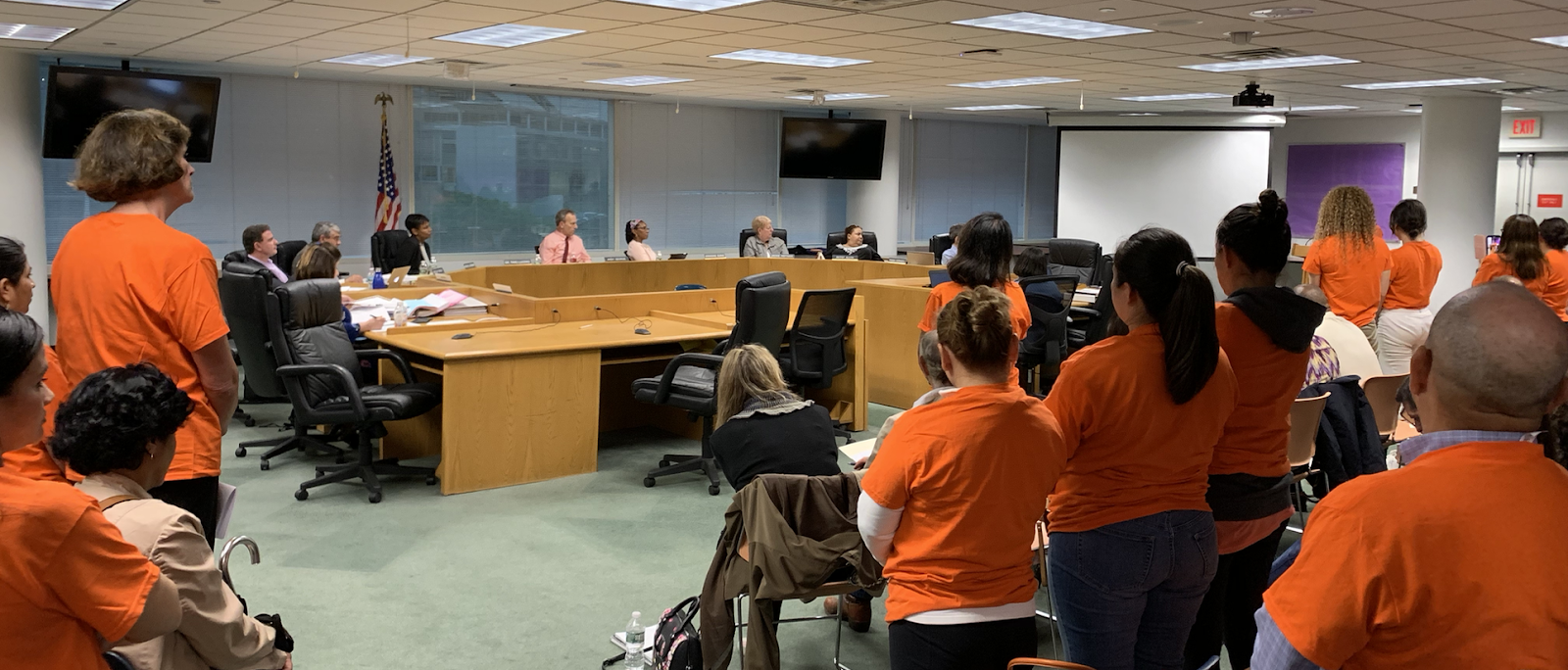
Jul 10, 2019 12:00:00 AM
Parents’ love for their children is the single greatest—and most underutilized—natural resource in education. I learned this firsthand as a son. My parents escaped political persecution and made enormous sacrifices to immigrate to the United States so that my sister and I could have better educational opportunities.
Today, as the CEO & Founder of Springboard Collaborative—an organization that closes the literacy gap by closing the gap between home and school—[pullquote position="right"]I see every day the potential for parents to dramatically improve educational outcomes for their children.[/pullquote] After all, there is no smaller classroom than a family’s living room, and there is no better way to personalize instruction than through a parent.
For all the data Springboard tracks, nothing conveys the potential in parent engagement better than the families themselves.
I have been inspired, in particular, by a small but mighty coalition of immigrant parents in Stamford, Connecticut. They call themselves "Parents Organized Will Effect Results," or the “POWER Parents," and they will stop at nothing to give their children the gift—and the power—of reading.
Earlier this year, a group of families in Stamford, Connecticut was dismayed to learn that their children were not reading on grade level and that a chasm was widening between their kids and more affluent peers. America was not fulfilling its promise of opportunity, for which the families had sacrificed so much. When a few of the parents caught wind of Springboard’s results in neighboring Norwalk, they decided to lobby their district to bring the program into Stamford Public Schools. They were especially drawn to Springboard’s family workshops, during which teachers equip and empower parents to be home literacy coaches. The POWER Parents were eager to get out of the passenger’s seat and step into the driver’s seat of their children’s literacy.
[pullquote]With guidance and support from Building One Community—a center for immigrant opportunity—the parents began organizing a campaign. Ten parents became 50, and 50 became 200.[/pullquote] This video beautifully captures the experience.
On Tuesday, May 28, the POWER Parents’ months-long effort resulted in a 4-hour rollercoaster of a meeting during which the Stamford school board approved Springboard's contract 5-to-4.

Parents clad in orange t-shirts gave stirring speeches during the public forum. One father explained that his own children are too old to participate in Springboard, but he's fighting for this opportunity so other families don't endure the same hardships. When the board finally voted, family members and district leaders alike shed tears of joy and relief.
You can see some of the parents in the photo above. The woman in the tan jacket on the left is my mother. My parents made the trip to show solidarity with the Power Parents, because their story is our story. It’s a story about making sacrifices that only a parent would, and facing the struggles of life as a newcomer with a steely resolve to advocate for your children.
The Stamford parents gaze at their children with the same unconditional love, unbridled optimism, and unwavering commitment with which my parents gaze at me. As one of the Stamford mothers told me: "I'm proud of you as if you were my son. When one of us makes it, we all make it."
Though Springboard is supporting 10,000 low-income families across the country, never before have we seen a group of parents organize to bring the program to their community. I hope this story serves as a model that can be replicated and as a beacon that lights the way for families across the country. Every parent dreams of a better tomorrow for their children; collectively, these dreams can move mountains.
When Alejandro Gibes de Gac was 7-years-old, his family immigrated to the US escaping political persecution and seeking educational opportunities. He published a memoir at 12 chronicling his challenges transitioning to life in America. In the process, he became as passionate about the education of others as he was about his own. After graduating from Harvard in 2009, he spent two years as a first grade teacher in Philadelphia. There he became frustrated that his students—and millions more in low-income communities—lack continuous access to learning at home and school. As a result, they face chronic, summertime reading losses in elementary school that account for two-thirds of the achievement gap in high school. This is symptomatic of a deeper problem: low-income parents have been left out of the process of educating their kids. Alejandro founded Springboard Collaborative in 2011 to close the literacy gap by closing the gap between home and school. He was since honored as ‘one of the world’s best emerging social innovators’ by Echoing Green, a leading venture philanthropy firm. He was also recognized as one of Forbes Magazine’s 30 Under 30 in 2014; one of two national recipients of the Claneil Emerging Leaders distinction in 2015; one of the Chronicle of Philanthropy’s 40 Under 40 in 2016; and a recipient of the People of Promise award from America’s Promise in 2017. Alejandro is an alumnus of Teach For America and McKinsey & Company. He holds a bachelor's degree with high honors from Harvard University and a master's degree in urban education from the University of Pennsylvania.
The story you tell yourself about your own math ability tends to become true. This isn’t some Oprah aphorism about attracting what you want from the universe. Well, I guess it kind of is, but...
If you have a child with disabilities, you’re not alone: According to the latest data, over 7 million American schoolchildren — 14% of all students ages 3-21 — are classified as eligible for special...
The fight for educational equity has never been just about schools. The real North Star for this work is providing opportunities for each child to thrive into adulthood. This means that our advocacy...
Your donations support the voices who challenge decision makers to provide the learning opportunities all children need to thrive.
Ed Post is the flagship website platform of brightbeam, a 501(c3) network of education activists and influencers demanding a better education and a brighter future for every child.
© 2020–2024 brightbeam. All rights reserved.
Leave a Comment